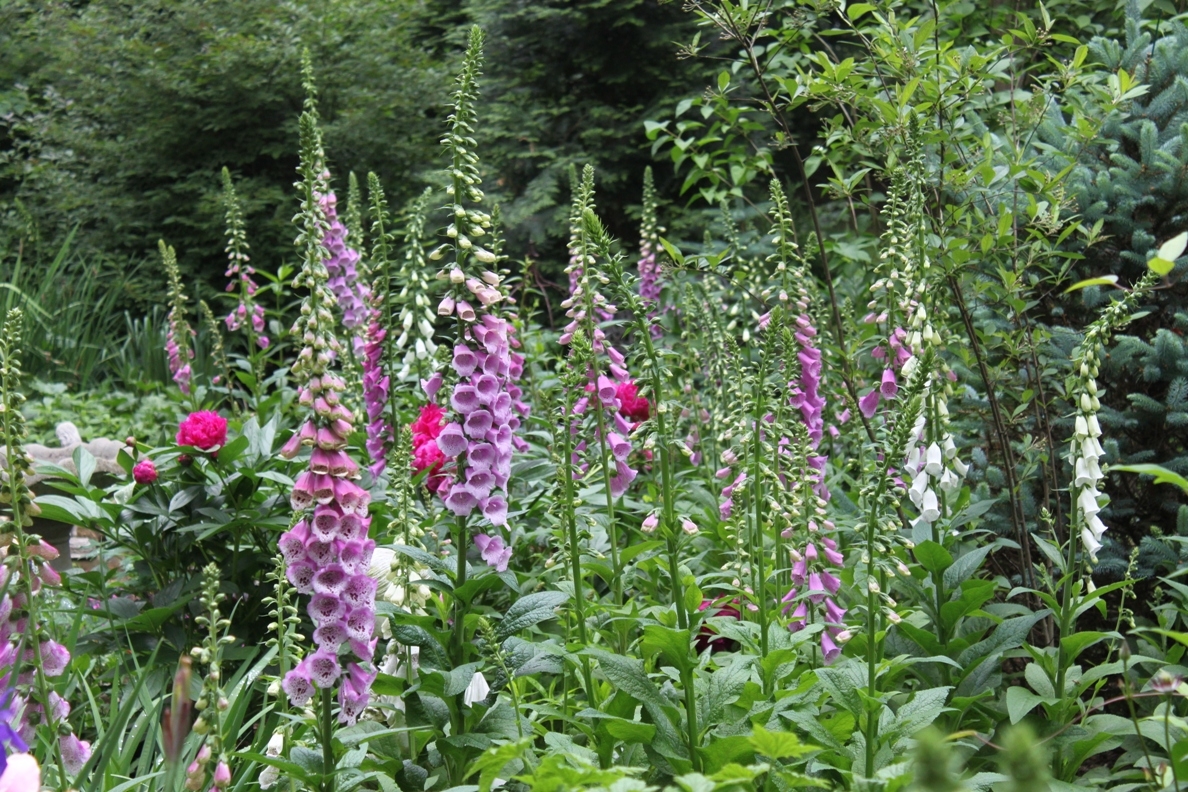As Master Gardeners, we are often asked for advice, and one of my
favorite bits of wisdom to impart is “Don’t be too tidy!”
Nature isn’t tidy.
Walk through the woods and you’ll see leaves scattered around, an
occasional stump or downed tree, flowers left to go to seed, and other evidence
that the cycle of life continues, not in spite of, but because of, a relaxed
attitude toward cleanliness.
A healthy garden, particularly one that strives to look natural,
benefits from some restraint on the part of the eager gardener. Here are some ways in which being
untidy will actually improve your enjoyment of your garden:
1.
Don’t cut, tie up, rubber band,
or otherwise abuse the leaves of plants grown from bulbs that have finished
blooming. Daffodils and other spring bulbs draw the nutrients they need to
bloom well next year from this year’s dying foliage.
2.
As you pick up the shears to carve
your forsythias into tight little squares or gumdrops, pretend you’ve gotten a
cramp and set a spell in the hammock instead. Like most shrubs, forsythias look more natural and beautiful
with minimal intervention. It is not their nature to form geometric shapes,
despite what Edward Scissorhands may tell you.
3.
Consider whether it makes sense
to rake up, bag, and haul away (or pay someone to haul away) leaves each fall,
only to buy, haul, and place (or pay someone to place) mulch on your
garden. Guess what nature uses for
mulch? That’s right, LEAVES. This
year, run your lawnmower over the leaves a few times (or get a leaf grinder)
and make your own mulch.
4.
Go native. Choose native plants (those that
naturally grow in this area) rather than plants from other regions. Native plants grew up here (over the
centuries), so they need less intervention in order to thrive. Their fruit is the right size for birds
(so it will get eaten instead of needing to be cleaned up) and their leaves can
generally be left where they drop.
5.
Leave the pesticides in the
can. Overuse of pesticides
actually creates the need for more pesticides because you are interfering with
the normal cycle of insects eating other insects. And birds need insects to feed their young.
6.
Don’t pull a weed unless you know
what it is. Plants move around,
often finding the perfect places for themselves and creating natural
communities that work well together.
Allow for a little spontaneity on the part of your garden residents.
7.
Don’t clean up all the
debris. A pile of brush, a fallen
tree, a scramble of bramble, can provide shelter or housing for birds and other
wildlife.
8.
Unless you know the plant to be
aggressive, don’t be too quick to deadhead (remove spent flowers) at the end of
the season. Let your plants seed
themselves around a little and you may find some happy surprises. Your garden will also look more natural
as it fills in.
9.
Minimize lawn. Whereas a garden can tolerate a great
deal of untidiness and still be very pleasing, lawns are admired only in a
state of sterile uniformity. Less
lawn means less time and money on maintenance and a livelier environment in
which to live. My neighbor’s yard
looks like a golf course, but guess were all the birds and butterflies
are? In my untidy little jumble.
10.When you stop obsessing about tidiness, you will find you enjoy your
garden more. No longer will you
torment yourself about a weed here or there or a stray aphid. You will smile and tell yourself smugly
that you are simply a naturalistic gardener.
Have a gardening question? Ask a Master Gardener! Call the Master Gardener Hotline: 610-696-3500 or email ChesterMG@psu.edu. Visit Chester County Master Gardeners
on Facebook. And come see us at the Kimberton Fair!
• Nancy Sakaduski is the Chester County Master Gardener
Coordinator. Master Gardeners are trained volunteers who educate the
public on gardening and horticultural issues. In Chester County, they
operate through the Penn State Cooperative Extension office in West
Chester. Nancy lives in Pennsbury Township. She can be reached at
nds13@psu.edu.
About Nancy Sakaduski
Nancy Sakaduski is a Master Gardiner with Penn State Extension of Chester County.




Comments